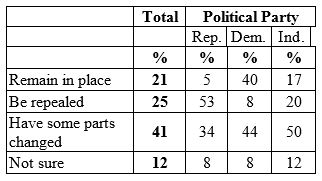
Adapted from my upcoming book: Your Money AND Your Life, coming Spring 2017.
In 1992, Dr. Kathryn Anastos was quoted as saying:
“It is unconscionable that we ration health care by the ability to pay… Health care should be a given.”
She’s not alone in her opinion. Even today, politicians, activists, and even physicians on the Left claim that health care is a fundamental right, that should be guaranteed to all by our government. This underlies the concept of socialized medicine, where the state becomes the provider of health care to the entire population.
These liberal progressives also make the point that anyone who opposes their idea of health care being a right, must view it as a privilege. In other words, reserved only for those lucky few who can afford to pay for it.
So which label is correct? Is health care a right? Or is it a privilege?
Actually, it’s neither. And to prove my point, let’s compare this philosophy to how we view some of life’s basic needs.
When I was in grade school, I remember being taught about three things that are essential for living: food, water, and shelter.
Never were truer words spoken. We have to have food and water to survive, and without shelter we would be exposed to the dangers of the elements, wild animals, and our fellow humans intent on doing harm.
And yet, none of these essentials is considered a right.
Our founding documents do establish a number of rights, such as to life, liberty and the pursuit of happiness; to the freedom of speech and of religion; and the right to bear arms. But nowhere did the framers mention the right to eat, the right to drink, or the right to housing.
Don’t keep up with your rent or mortgage? You can be legally evicted.
Ignore the water bill? The local utility company will come to your house and shut it off.
Likewise, I don’t know of any grocery stores or restaurants that would accept “It’s my right to eat!” as a form of payment.
While it’s true that the government does assist the elderly, the poor, and the disabled in obtaining these basic necessities, these programs don’t apply to everyone. To receive such state assistance, one must first qualify by meeting certain criteria.
So there is no right to have food, water, or shelter, and even most liberals stop short of saying that it is the responsibility of the government to provide them to everyone.
But does that mean that they are privileges? Hardly.
A privilege can be defined as a “special right or advantage, available only to a particular group of people.”
Clearly, there is no privileged group of Americans who are the only ones that can find food, water, or shelter; the majority of us are able to eat, drink, and live comfortably, without any financial help from the government whatsoever.
So if some of our most basic needs are neither rights – nor privileges – then what exactly are they?
They are necessities, and nothing more. Because we need them to live.
Not so with health care, though. Unlike food, water, or shelter, health care is not a necessity. Health care may be able to make us healthier, alleviate pain and suffering, and prolong life, but it isn’t essential on a day-to-day, or even routine basis.
In fact, I’ve met many Americans who’ve gone for years, decades, and sometimes most of their lives without receiving any professional health care.
But if health care isn’t absolutely necessary for life, then why is it even spoken of in terms of being a right, vs a privilege?
Because it’s a great platform for big government proponents on the Left to take a moral stance, and promote their agenda by claiming that only the government can fix our broken health care system.
Calling health care a right also sets up a false argument against conservatives: anyone who opposes the idea of “health care for all,” must take the cruel and heartless stance that health care is deserved only by a few.
Except our system, even as it exists now belies that theory. Just as the elderly, the poor, and the disabled receive help in obtaining their food, water, and shelter, so do we have massive government programs in place to assist them with – health care.
A lot of it. In fact, over 1/3 of Americans with health insurance get their coverage through the government, and these programs pay for virtually all of those recipients’ health care.
Yet by claiming that health care is a right, liberals seek to extend this government-funded – and thus government controlled – health insurance to cover most, if not all citizens.
There’s no need to, however. Because health care isn’t a privilege. Nor is it a right.
Health care is simply a service industry, like many others.
When the framers of our Constitution enumerated their list of unalienable rights, Thomas Jefferson said it best: the government’s role is “to secure these Rights,” and not to create new ones.
Including, the misguided notion of there being a right to health care.
It’s not the COSTS of health care that are outrageous…it’s the CHARGES.
Kevin Wacasey, M.D. Bio here.
An earlier version of this appeared on Healthcareonomics.
 Some states are trying to solve the shortage of donor organs by requiring the legal owners of the aforementioned organs to “opt out” if they don’t want to give away thousands of dollars worth of organs for free at time of death.
Some states are trying to solve the shortage of donor organs by requiring the legal owners of the aforementioned organs to “opt out” if they don’t want to give away thousands of dollars worth of organs for free at time of death.







